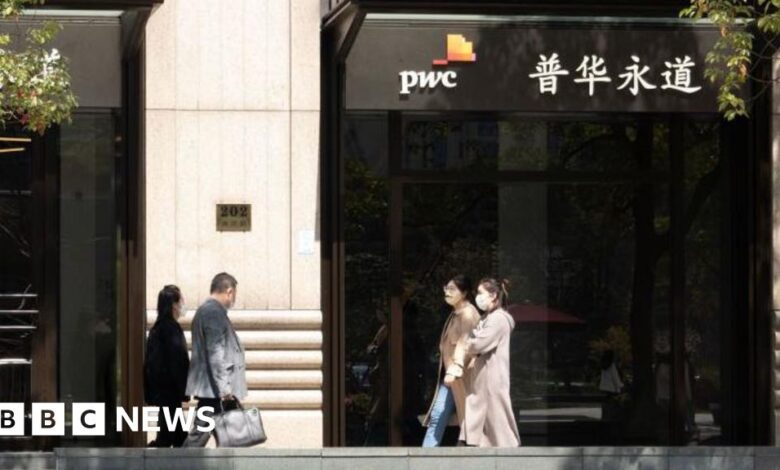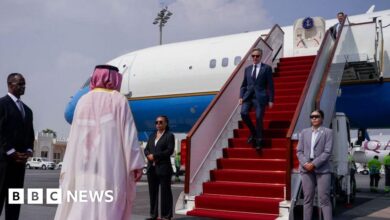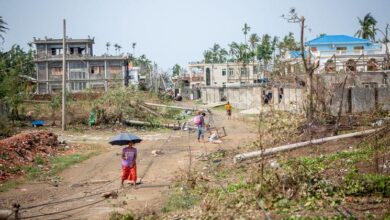PwC fined and banned from operating in China for six months over Evergrande audit

PwC’s China branch has been suspended from operating in the country for six months over its work on collapsed Chinese real estate giant Evergrande.
The Big Four accounting firm was also fined more than $62m (£47m) after Chinese authorities said it helped cover up fraud at Evergrande.
The real estate company went bankrupt in January due to mounting debt.
PwC said it was “disappointed” with the unit’s work in China, saying it was “well below the standards” expected by PwC.
Chinese authorities say PwC knew there were “major flaws” in Evergrande’s financial statements when it audited the company.
As a result, the Chinese Ministry of Finance imposed “administrative sanctions” and suspended PwC’s operations for six months.
In addition, China’s securities regulator has seized revenue PwC earned from auditing Evergrande and has also imposed a fine.
A regulator investigation said PwC had “seriously eroded the rule of law and goodwill, and damaged the interests of investors”.
In response to the penalties, PwC said it had taken “a number of corrective and accountability actions”, including dismissing six partners and putting in place a process to sanction responsible team leaders.
Five other staff have also been let go and Hemione Hudson, PwC’s global head of risk and regulatory management, has been brought in to temporarily run the unit in China.
PwC admits Evergrande audit was “well below” the standard the company expected.
“This does not represent our goals as a network and there is no place for this at PwC,” said the firm’s global chairman, Mohamed Kande.
“That is why, following a thorough investigation, we ensured that actions were taken to hold those responsible accountable.
“I remain confident in our Chinese partners and employees as we work together to rebuild trust with our stakeholders,” he added.
Evergrande, a real estate developer that built properties in more than 280 Chinese cities and expanded into other businesses, faltered and eventually collapsed in January.
Chinese authorities have accused Evergrande and its founder Hui Ka Yan of overstating the company’s revenue by up to $78bn (£61.6bn) and imposed fines and bans on him and the company.




